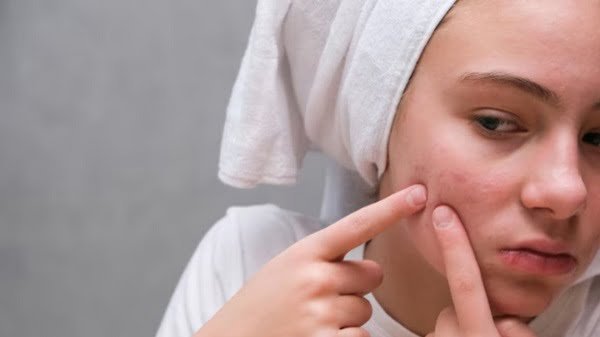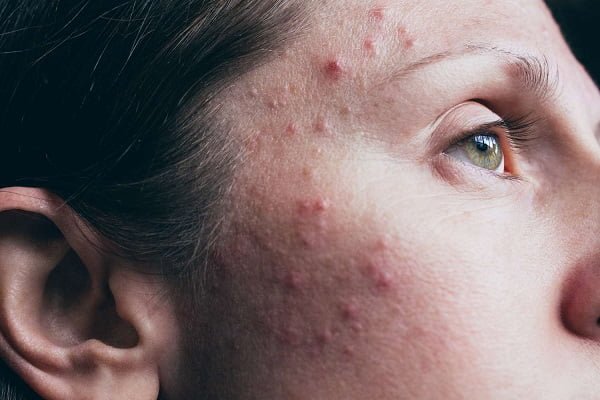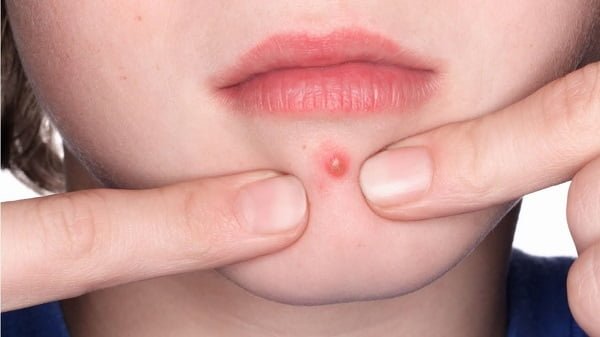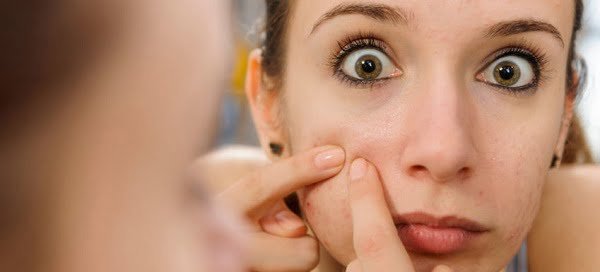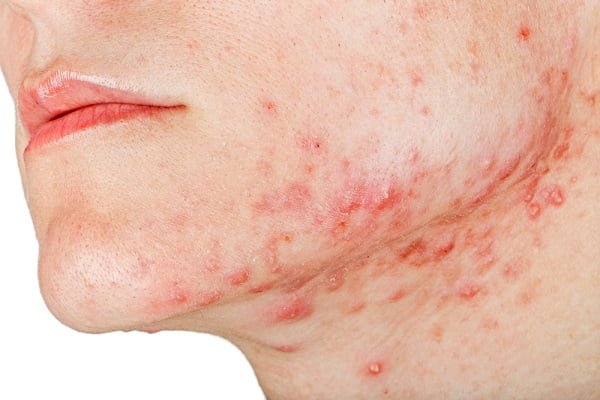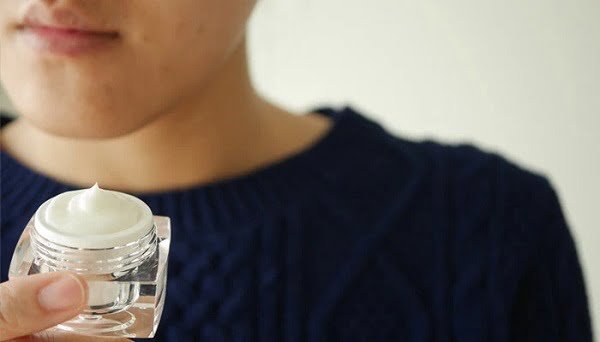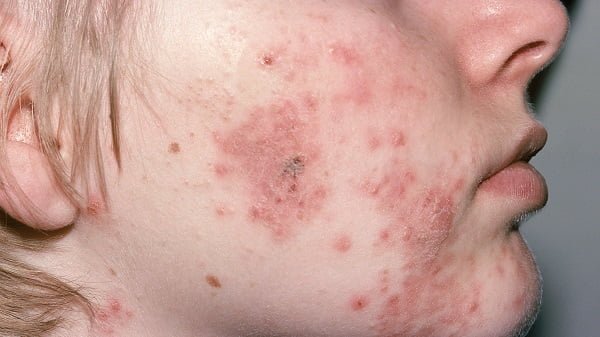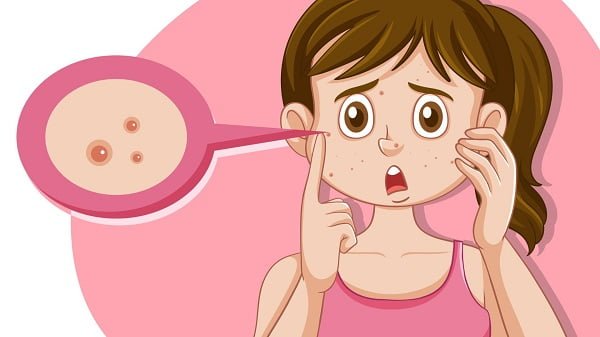Introduction:
Dealing with persistently clogged pores can be frustrating and perplexing. Whether it’s those pesky whiteheads that seem to never go away or a constant battle with dull, congested skin, understanding the causes and effective treatments is essential for achieving clearer, healthier skin.
Understanding the Problem:
Clogged pores, particularly those filled with white stuff, are often caused by a combination of excess oil production, dead skin cells, and bacterial buildup. When these substances become trapped in the pores, they form whiteheads or comedones, leading to a congested appearance and sometimes even inflammation.
Causes of Persistent Clogged Pores:
- Excess Sebum Production: Overactive oil glands can lead to an accumulation of sebum on the skin’s surface, contributing to pore blockage.
- Poor Skincare Routine: Inadequate cleansing or using products that are too harsh can fail to effectively remove oil, dirt, and makeup, exacerbating pore congestion.
- Hormonal Changes: Fluctuations in hormone levels, especially during puberty, menstruation, pregnancy, or menopause, can increase oil production and lead to clogged pores.
- Dietary Factors: Certain foods high in sugar, dairy, or processed ingredients may exacerbate skin issues by increasing inflammation and oil production.
- Environmental Factors: Exposure to pollutants, UV radiation, and other environmental aggressors can contribute to pore congestion and skin dullness.
What is white Stuff in clogged Pores-
The white substance often found in clogged pores is typically a combination of dead skin cells, excess oil (sebum), and sometimes bacteria. When these substances become trapped in the hair follicles or pores, they can form what is known as a whitehead or comedone.
- Dead Skin Cells: The skin naturally sheds dead cells to make way for new ones. However, if these cells are not effectively removed from the surface of the skin, they can mix with sebum and become trapped in the pores, leading to pore congestion.
- Excess Oil (Sebum): Sebum is produced by the sebaceous glands and is essential for keeping the skin moisturized and protected. However, overproduction of sebum can lead to oily skin, which increases the likelihood of pore blockage.
- Bacteria: Propionibacterium acnes is a type of bacteria that resides on the skin’s surface and is involved in the development of acne. When pores become clogged with a combination of oil and dead skin cells, it creates an ideal environment for bacteria to thrive, leading to inflammation and the formation of whiteheads or pustules.
Effective Treatment Strategies:
- Gentle Cleansing: Use a mild, non-comedogenic cleanser twice daily to remove impurities without stripping the skin of its natural oils.
- Exfoliation: Incorporate chemical exfoliants like salicylic acid or glycolic acid into your skincare routine to help unclog pores and remove dead skin cells.
- Moisturizing: Hydrate the skin with a lightweight, oil-free moisturizer to maintain a healthy moisture balance and prevent excessive oil production.
- Regular Use of Clay Masks: Weekly application of clay masks can help draw out impurities, absorb excess oil, and refine the appearance of pores.
- Avoiding Comedogenic Ingredients: Check skincare and makeup products for comedogenic ingredients like mineral oil, lanolin, and certain types of silicones, which can exacerbate pore congestion.
- Professional Treatments: Consider seeking professional treatments such as chemical peels, microdermabrasion, or extractions from a dermatologist or esthetician for more stubborn cases of pore congestion.
Conclusion:
Dealing with constantly clogged pores can be a frustrating experience, but with the right understanding and treatment approach, achieving clearer, healthier skin is within reach. By addressing the underlying causes, adopting a consistent skincare routine, and choosing suitable products, you can effectively manage pore congestion and enjoy a smoother, more radiant complexion. Remember, patience and consistency are key on the journey to healthier skin.
FAQs related to "My pores are always clogged with white stuff"
Pores can become clogged with a combination of dead skin cells, excess oil (sebum), and sometimes bacteria. When these substances mix and accumulate in the pores, they can form whiteheads or comedones.
Maintaining a consistent skincare routine is key to preventing pore congestion. This includes gentle cleansing to remove dirt, oil, and makeup, regular exfoliation to slough off dead skin cells, and using non-comedogenic moisturizers and skincare products.
Yes, there are several skincare products formulated specifically to help unclog pores and prevent whiteheads. Look for products containing ingredients like salicylic acid, glycolic acid, or benzoyl peroxide, which are known for their pore-clearing properties.
While it may be tempting to extract whiteheads at home, it’s generally best to leave extractions to professionals, such as dermatologists or estheticians. Improper extraction techniques can lead to scarring, infection, or further skin damage.
Yes, certain dietary factors may contribute to pore congestion and acne. Foods high in sugar, dairy, and processed ingredients have been linked to increased inflammation and oil production, which can exacerbate pore congestion and other skin issues.
Results from pore-clearing skincare products can vary depending on individual skin types and the severity of pore congestion. However, with consistent use, many people begin to see improvements in their skin within a few weeks to a couple of months.
No, moisturizing is still important even if you have clogged pores. Opt for lightweight, non-comedogenic moisturizers that won’t clog pores or exacerbate congestion. Proper hydration helps maintain skin barrier function and can actually help regulate oil production.
If you’re struggling with persistent pore congestion despite a consistent skincare routine, it may be time to seek professional help. A dermatologist or esthetician can provide personalized recommendations and treatments to effectively address your skincare concerns.

